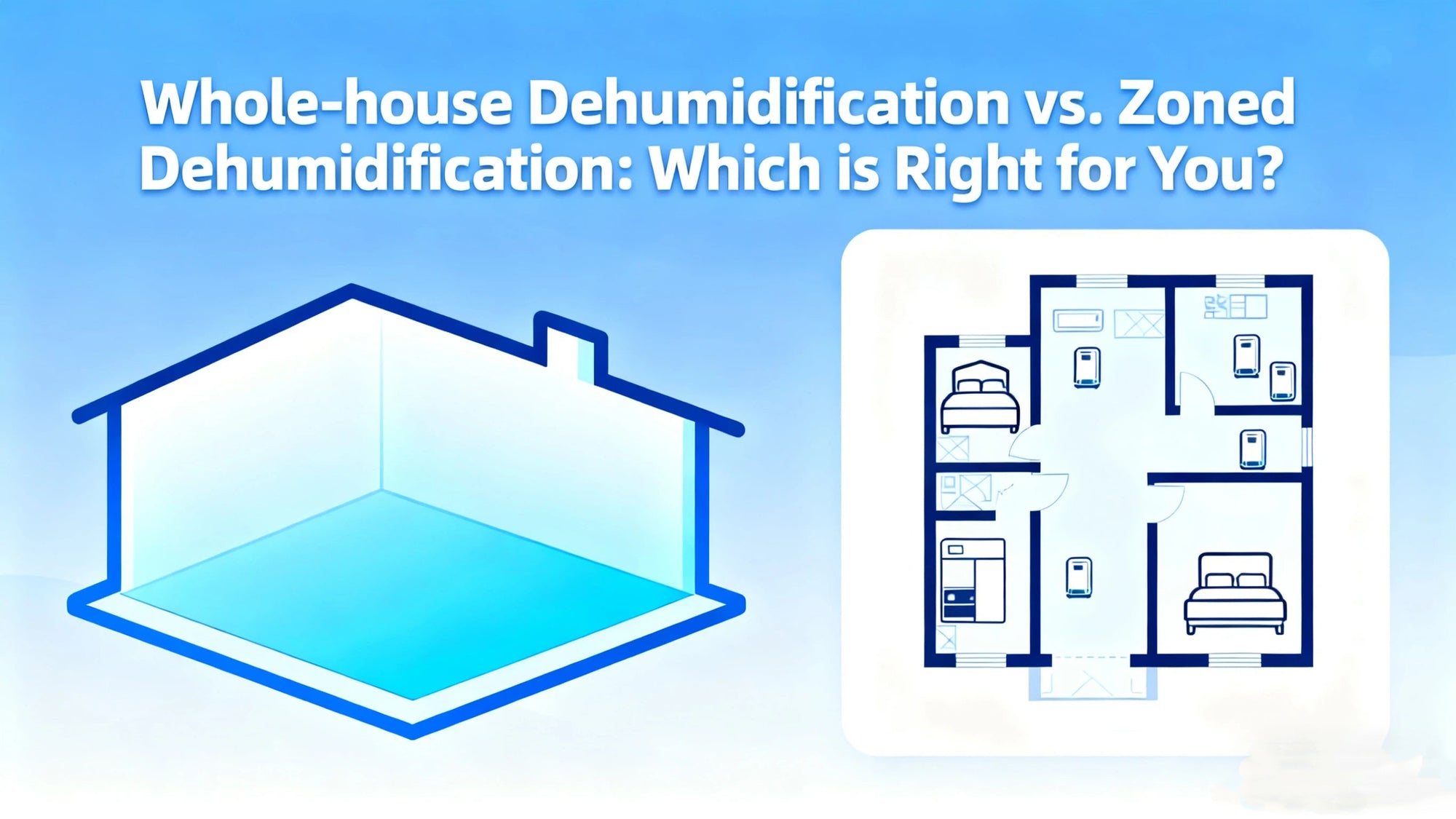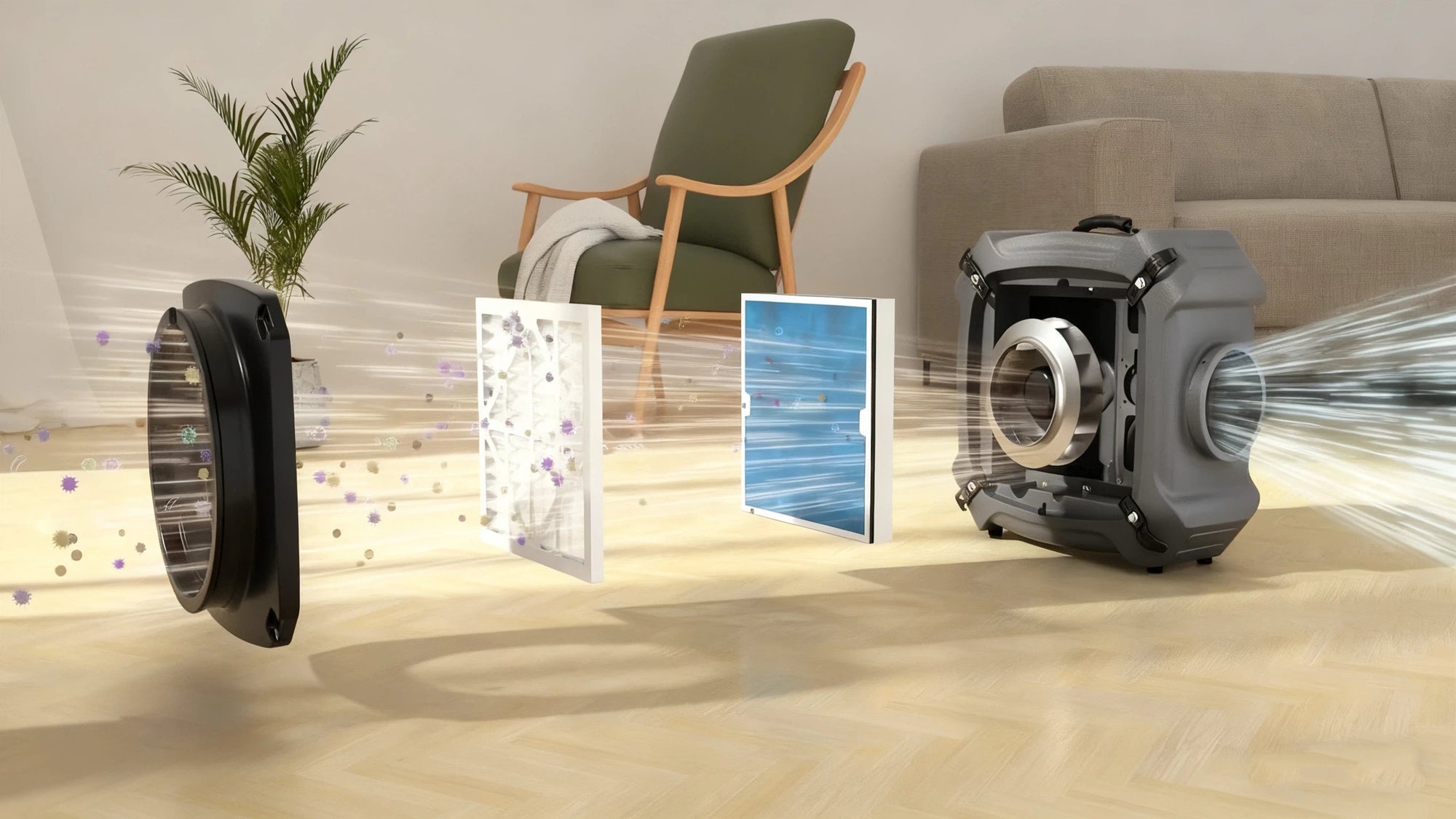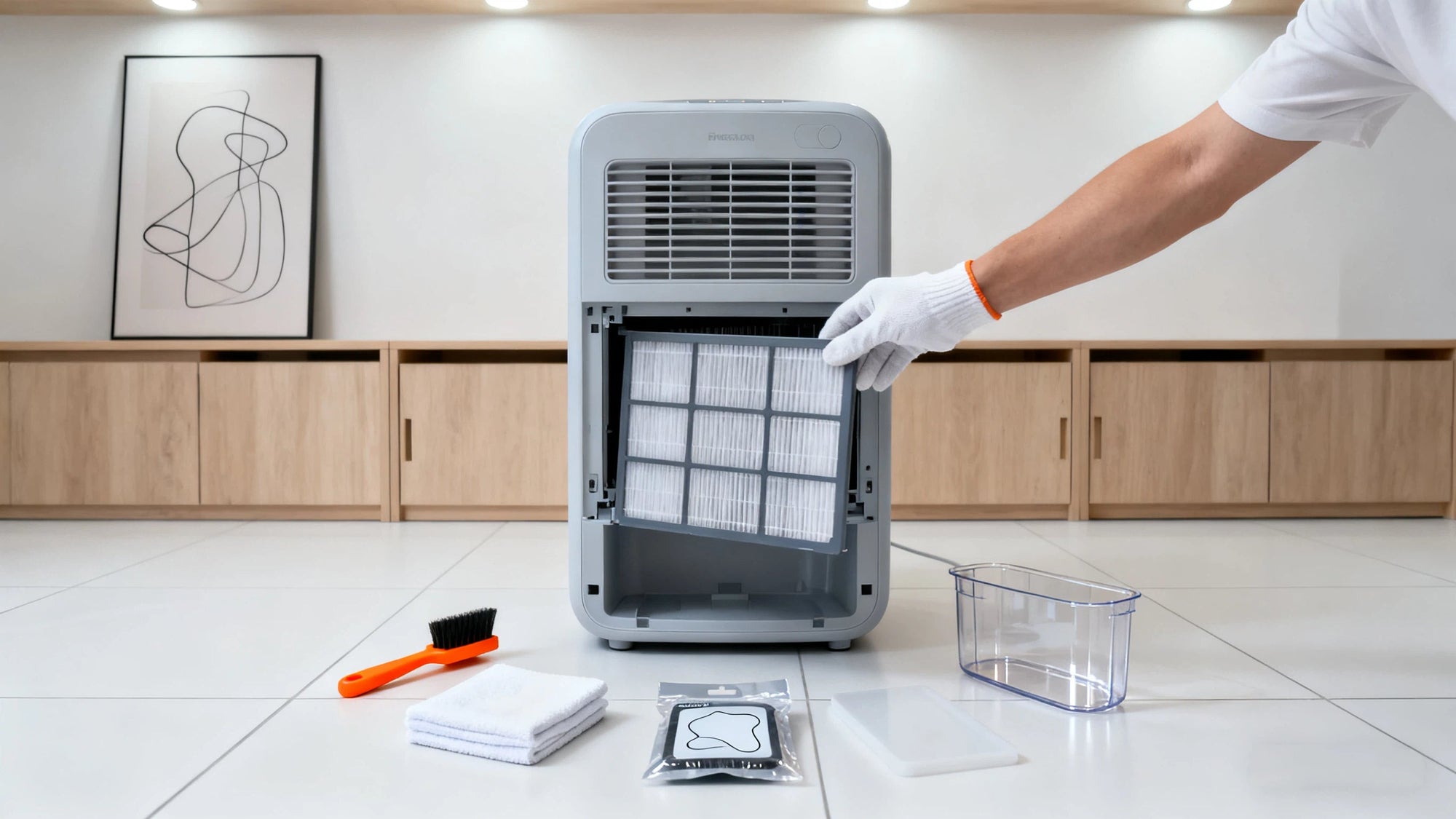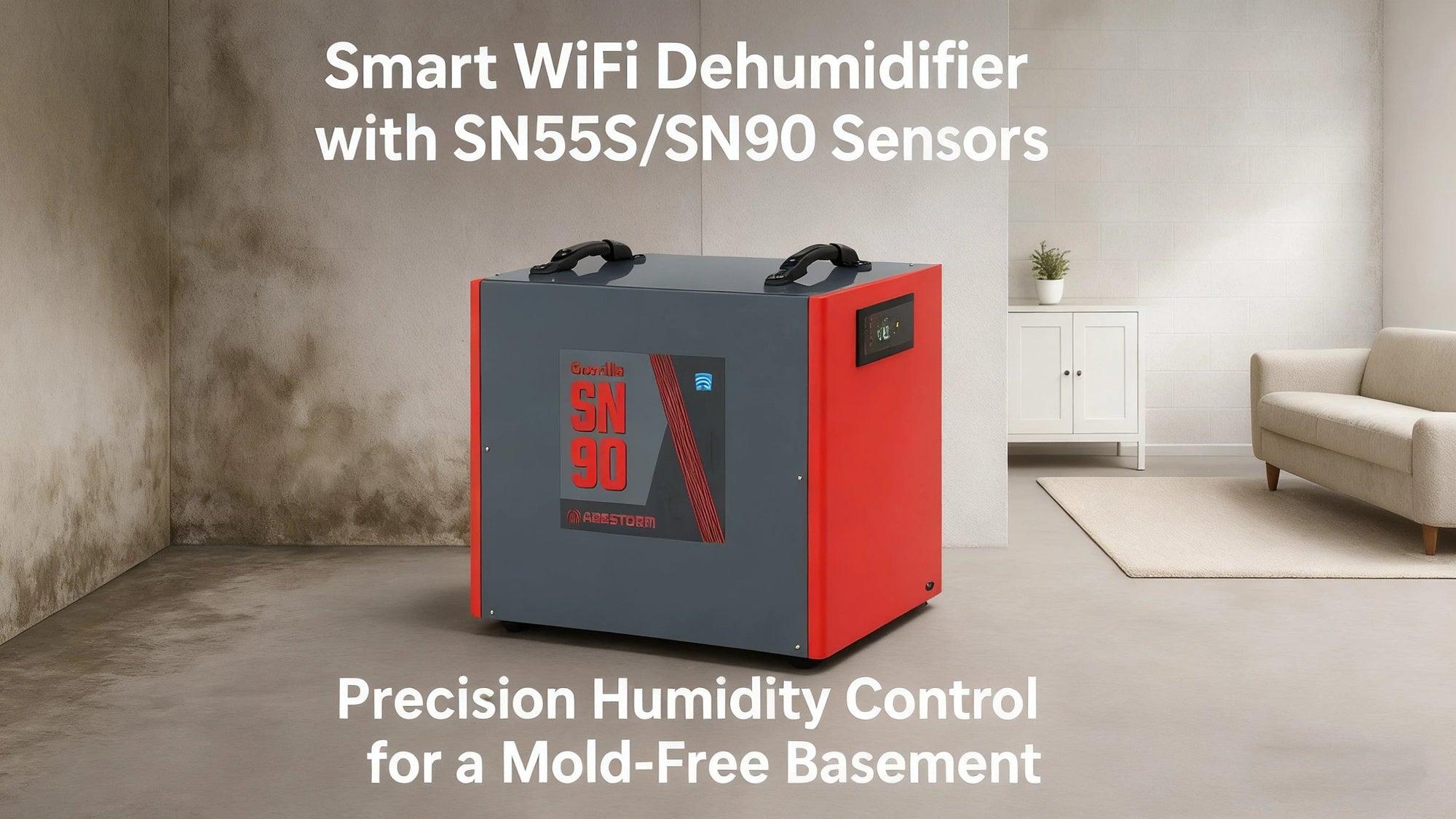In an era where the pursuit of clean, breathable air has become more paramount than ever, the question arises - Do I Need An Air Purifier? The essence of inhaling pure, uncontaminated air is not just a luxury but a necessity in fostering a healthy living environment. Air purifiers, devices designed to cleanse the air in your surroundings, have thus become a staple in many households and offices. They work diligently, often silently, to remove particles, allergens, and contaminants, ensuring that every breath you take is a step toward wellness. But how do they accomplish this? And more importantly, is investing in an air purifier the right step for you?
Journey with us as we delve into the world of air purifiers, exploring their workings, and benefits, and addressing common misconceptions, to help you make an informed decision for your health and comfort.
I. Understanding Air Purifiers and How They Work
Air purifiers have cemented their place as vital devices in safeguarding our respiratory health and enhancing our indoor living spaces. But what exactly is an air purifier, and how does it manage to cleanse the air we breathe?
What is an Air Purifier?
An Air Purifier is a device designed to remove contaminants, particles, and pollutants from the air within a specific area. These devices are engineered to capture and neutralize various airborne particles, such as dust, pollen, and bacteria, thereby providing a cleaner, healthier air quality for the inhabitants.
How Does an Air Purifier Work?
The functionality of air purifiers can be attributed to their sophisticated filtering systems. Typically, air is drawn into the device, where it passes through a series of filters that capture different types and sizes of particles. High-Efficiency Particulate Air (HEPA) filters, for instance, are renowned for their ability to trap minute particles, effectively reducing the prevalence of allergens in the air. Some purifiers also utilize technologies like ionizers or UV lights to further neutralize airborne threats, such as viruses and bacteria, ensuring a thorough purification process.
II. The Benefits of Air Purifiers
The incorporation of air purifiers into our living and working spaces brings forth a plethora of benefits, contributing not only to our physical well-being but also to our mental comfort and ease.
Improving Indoor Air Quality
Air purifiers tirelessly improve indoor air quality by systematically removing harmful particles and pollutants. This ensures that the air you breathe is consistently clean and of a higher quality, which is particularly beneficial in indoor environments where ventilation may be limited.
Reducing Allergens and Asthma Triggers
Air purifiers serve as a shield for individuals who grapple with allergies or asthma, reducing allergens and asthma triggers like pollen, pet dander, and dust mites. By minimizing these elements, air purifiers can alleviate respiratory issues and enhance overall comfort.
Removing Odors
Unpleasant odors stemming from cooking, pets, or smoke can be effectively neutralized with an air purifier. By removing odors, these devices help maintain a fresh and pleasant indoor atmosphere, contributing to a more enjoyable living space.
Lowering the Risk of Airborne Diseases
Air purifiers can also play a role in lowering the risk of airborne diseases by reducing the concentration of airborne pathogens in the environment. This becomes especially crucial in times when airborne diseases can easily be transmitted, providing an additional layer of protection for you and your loved ones.
III. Situations Where You Might Need an Air Purifier
Navigating through various life scenarios, certain situations distinctly highlight the necessity of an air purifier. Let’s explore some conditions where having an air purifier can be particularly advantageous.
Living with Pets
For pet owners, Living with Pets can be a joyous experience but not without its challenges. Pets tend to shed dander, and hair, and carry outdoor allergens into the home. An air purifier can effectively minimize these particles, ensuring a cleaner environment for both owners and pets alike.
Allergy or Asthma Sufferers
Individuals grappling with respiratory conditions often find solace in environments where air quality is prioritized. For Allergy or Asthma Sufferers, an air purifier can be a silent guardian, reducing potential triggers and facilitating easier breathing.
Living in High Pollution Areas
Residing in areas where air pollution is rampant can have adverse effects on health. For those Living in High Pollution Areas, air purifiers act as a barrier, filtering out harmful pollutants and providing a safe indoor haven from the polluted external environment.
Frequent Smokers in the House
Homes where smoking is prevalent can benefit significantly from air purifiers. For households with Frequent Smokers, these devices work to minimize smoke particles and odors, ensuring fresher and more pleasant indoor air quality.
IV. Choosing the Right Air Purifier for Your Needs
Embarking on the journey to select an air purifier entails considering various factors to ensure that the chosen device aligns perfectly with your needs. Here are some pivotal points to ponder when making your selection.
Size of the Room
The Size of the Room is a critical factor in choosing an air purifier. Ensure that the device is capable of purifying the air in the entire room. This is often indicated by the purifier’s Clean Air Delivery Rate (CADR) and recommended room size.
Noise Level
Considering the Noise Level is vital, especially for air purifiers placed in bedrooms or workspaces. Opt for a model that balances efficient purification with quiet operation to ensure it does not become a source of disturbance.
Energy Efficiency
In an era where sustainability is key, selecting an Energy-Efficient air purifier not only reduces your ecological footprint but also ensures that the device does not significantly impact your energy bills.
V. Common Misconceptions About Air Purifiers
In our journey through understanding air purifiers, it's pivotal to address and debunk some prevalent misconceptions that often circulate about these devices, ensuring that your decision to invest in one is well-informed and devoid of myths.
Air Purifiers and Total Elimination of Allergens
While air purifiers are adept at reducing allergens, believing they provide a Total Elimination of Allergens is a misconception. They significantly lower allergen levels but may not completely eradicate all particles, especially those settled on surfaces.

Air Purifiers as a Cure for Health Conditions
It's essential to note that while air purifiers can alleviate symptoms and improve air quality, viewing them as a Cure for Health Conditions is inaccurate. They should be seen as a supplement to other health management practices, not a sole solution.
Air Purifiers and Outdoor Air Quality
Another common myth is that air purifiers can improve Outdoor Air Quality. Their functionality is primarily confined to the interiors where they are installed, having no impact on the external air quality.
Conclusion
Embarking on a quest for cleaner, purer air within our living spaces, we've traversed through the workings, benefits, and practical applications of air purifiers, while also debunking common myths surrounding them. The essence of an air purifier transcends its physical form, embodying a shield safeguarding our respiratory health and enhancing our indoor environments. Whether mitigating allergens, neutralizing odors, or providing a respite from external pollution, air purifiers stand as silent sentinels, ensuring every breath we take is a stride towards wellness.
As you contemplate investing in an air purifier, remember to consider your specific needs, spatial constraints, and desired outcomes, ensuring that your chosen device seamlessly integrates into your pursuit of a healthier living space.









Shop For Dehumidifier
Abestorm 170 PPD 2,100 Sq.Ft Commercial Dehumidifier with Pump and Drain Hose | Hurricane 800
Abestorm 180 PPD 2,300 Sq.Ft Commercial Dehumidifier with Pump and Drain Hose | Hurricane LGR85
Abestorm 180 PPD 2,300 Sq.Ft Smart WIFI Commercial Dehumidifier with Pump and Drain Hose | Hurricane LGR85-Grey (wifi app not available now)
Abestorm 264 PPD 3,000 Sq.Ft Commercial Dehumidifier with Pump and Drain Hose | Hurricane 125P